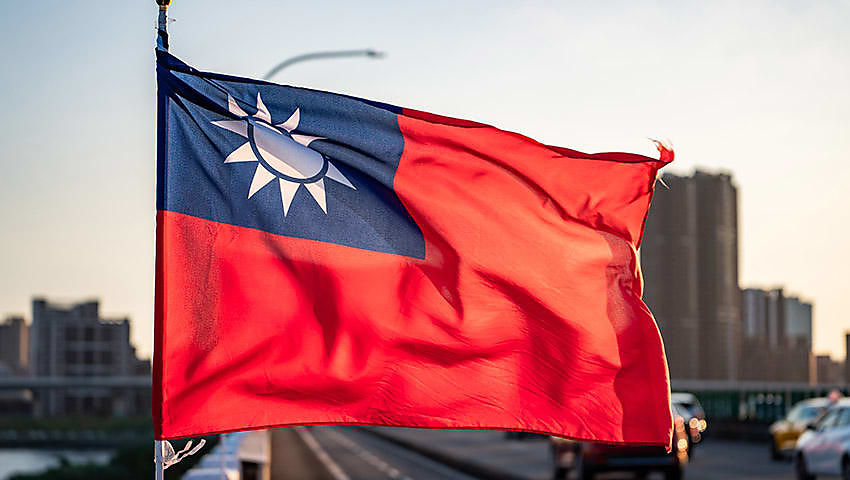Can the West still deter Beijing from pulling the liberal democracy into its orbit?
To continue reading the rest of this article, please log in.
Create free account to get unlimited news articles and more!
In an address to the National Press Club earlier this week, Chinese ambassador to Australia Xiao Qian addressed concerns over China’s ongoing military exercises off the coast of Taiwan in response to US House Speaker Nancy Pelosi’s visit to Taipei.
The ambassador claimed Beijing had been “patient” for several decades, seeking peaceful unification with Taiwan, but has since been provoked by the US and its allies.
According to Xiao, the West has violated commitments to the One China policy.
Xiao warned China would not rule out the option to use “other means”.
“When necessary, when compelled, we are ready to use all necessary means. As to what I mean by ‘all necessary means’, you can use your imagination,” he says.
“But the 1.4 billion Chinese people are absolutely determined to protect our sovereignty and territorial integrity.
“We will never allow Taiwan to be separated from China.”
Xiao’s remarks, which echo President Xi Jinping and Defence Minister Wei Fenghe’s sentiments, imply a future annexation of Taiwan is inevitable.
Dr Michael Green, chief executive officer of the United States Studies Centre, unpacks the risks of this “coercive absorption” for the region at large.
He says it would “sever the first island chain”, cornering Japan and “cutting off Australia”. This, he adds, would put “critical sea lanes under Beijing’s control”.
Additionally, Taiwan’s semiconductor manufacturing base would be under China’s thumb, providing Beijing with a “stranglehold on global supply chains” and a “boon in the race to master artificial intelligence”.
He continues: “Such an attack on a free people so close to Japan and other US democratic allies obviously would shake the entire US alliance system and potentially lead to great power war given the stakes for both sides.”
But according to Dr Green, the US, Australia, and Japan can still deter an invasion if they coordinate a joint security strategy.
“Japanese Prime Minister Fumio Kishida’s meeting with Pelosi after her stop in Taipei demonstrated that Tokyo understands what is at stake and appreciates US resolve,” he writes.
“Australia, too, has much riding on developments in the Taiwan Strait, even if further from the direct action than Japan.
“Indeed, no two allies will have more influence on US decision-making on Taiwan in the coming weeks and months than Japan and Australia.”
Dr Green says the three nations should invest in deterrence through mechanisms such as AUKUS, helping to cement the “undersea warfare lead” of the US alliance system while advancing capabilities development and force posture in the near term.
“Japan’s new defence plan is expected to be similarly robust with greater emphasis on counterstrike capabilities and integration with US forces,” he adds.
“Taipei, too, is finally beginning to move to a ‘porcupine’ strategy after seeing the success of Ukraine’s outnumbered forces when they used asymmetric missile and drone technologies.
“But all these ambitious initiatives will require resources and implementation.”
Dr Green goes on to claim the US, Australia and Japan could deter military aggression from China by “reinforcing alignment among a larger group of like-minded countries”.
This, he argues, could impose “serious geopolitical and economic costs” on China.
“These partners include India, South Korea and NATO, where Russian and Chinese actions are inclining capitals to do more together to uphold stability and deter aggression,” he observes.
According to Dr Green, the US, Australia and Japan should also continue backing Taipei and encouraging President Tsai Ing-wen to be “moderate in her stance on cross-strait issues”.
“By supporting Taiwan’s democracy and economy and deepening our exchanges, we can collectively incentivise the prudent course Tsai has set for Taipei despite her own party’s private hope for independence and the Taiwan public’s understandable disillusion with Beijing’s proposal for ‘one country, two systems’ after what happened to democracy in Hong Kong,” Dr Green continues.
“The worst thing we could do would be to assume that unification by war would be easy for Beijing and thus pre-emptively lose our will or our focus on deterrence and stability.
“Though the PLA has expanded its military power dramatically during the past decade, Beijing’s new assertiveness also has deepened counterbalancing by countries that had no security relationships before China prompted their mutual alignment.”
Drawing from the outcomes of the Russia- Ukraine conflict, Dr Green states Beijing could face a “deeply uncertain outcome from the use of force” both operationally and geostrategically.
He concludes: “While unification is part of the CCP’s raison deter, there is little incentive for Xi to gamble the party’s existence by forcing unification against a determined international community and a smart and stubborn Taiwanese defence – as long as Taipei is convinced not to change unilaterally the status quo itself.
“But make no mistake – this will take more resolve, resources, steady diplomacy and solidarity than the US and Australia have required in the face of any security challenge since the end of the Cold War – or possibly ever.”
Get involved with the discussion and let us know your thoughts on Australia’s future role and position in the Indo-Pacific region and what you would like to see from Australia's political leaders in terms of partisan and bipartisan agenda setting in the comments section below, or get in touch with

 Login
Login







